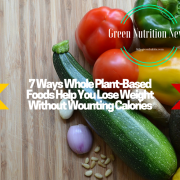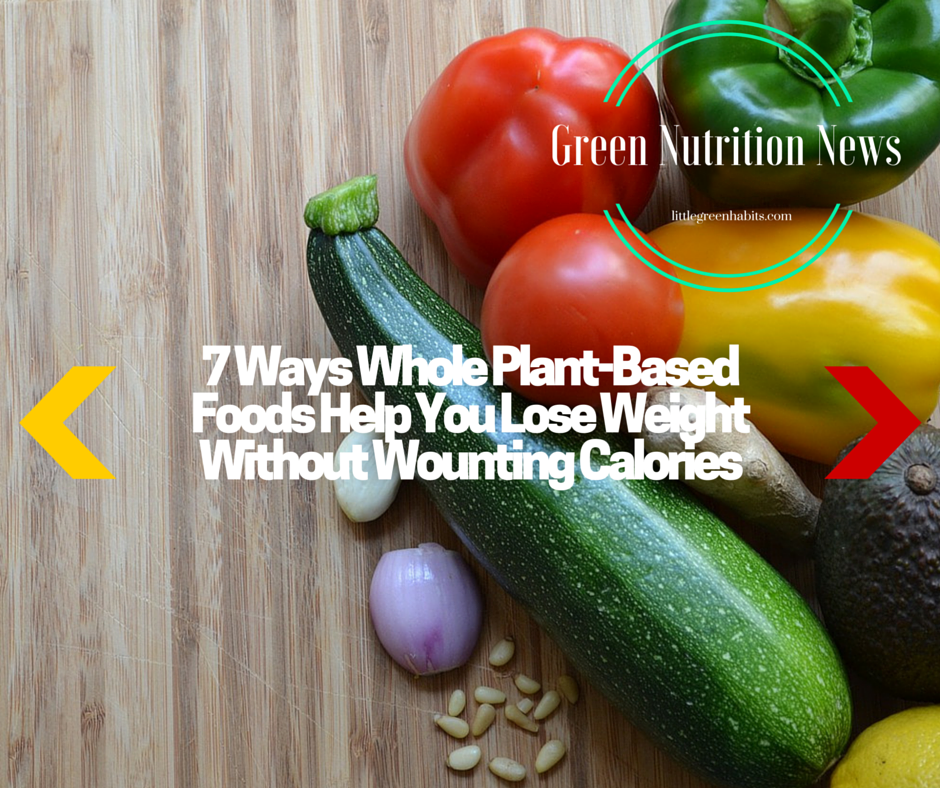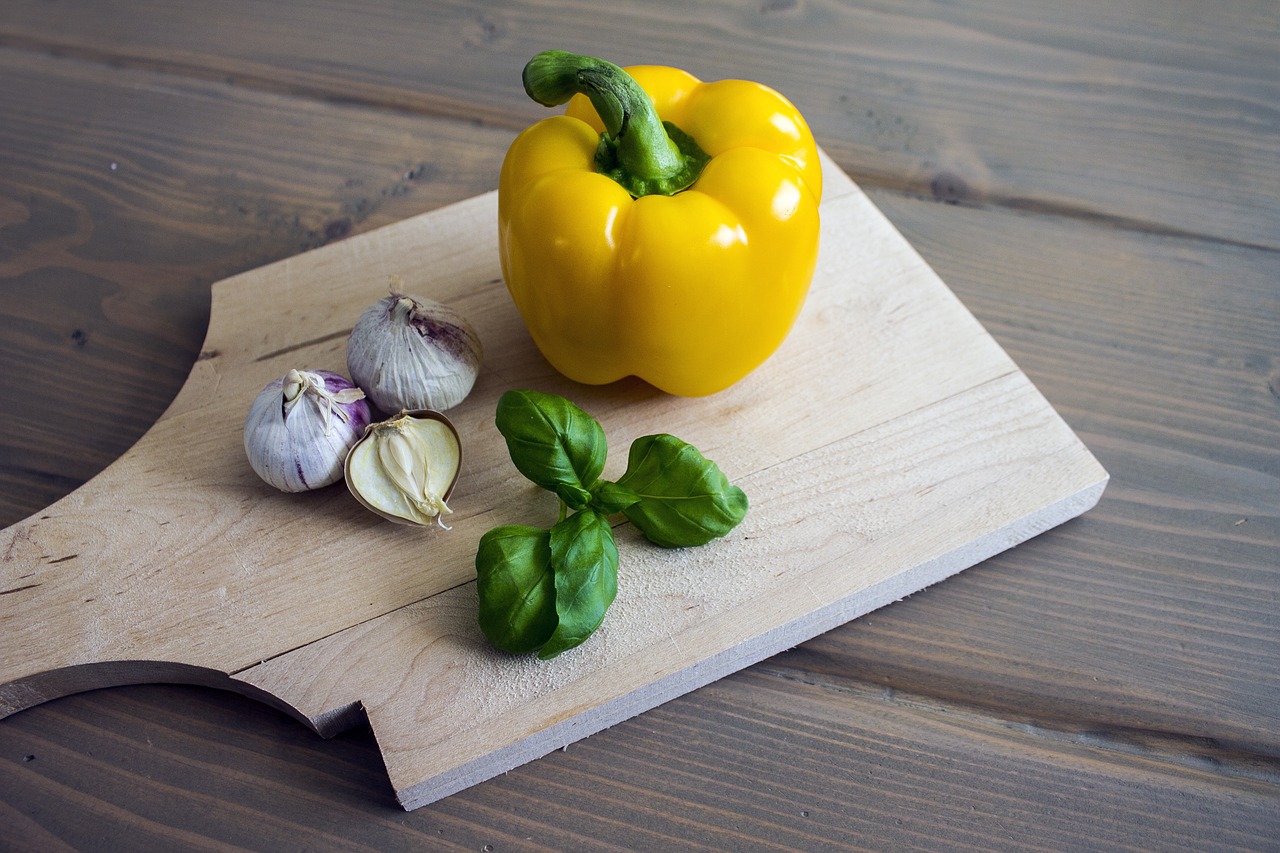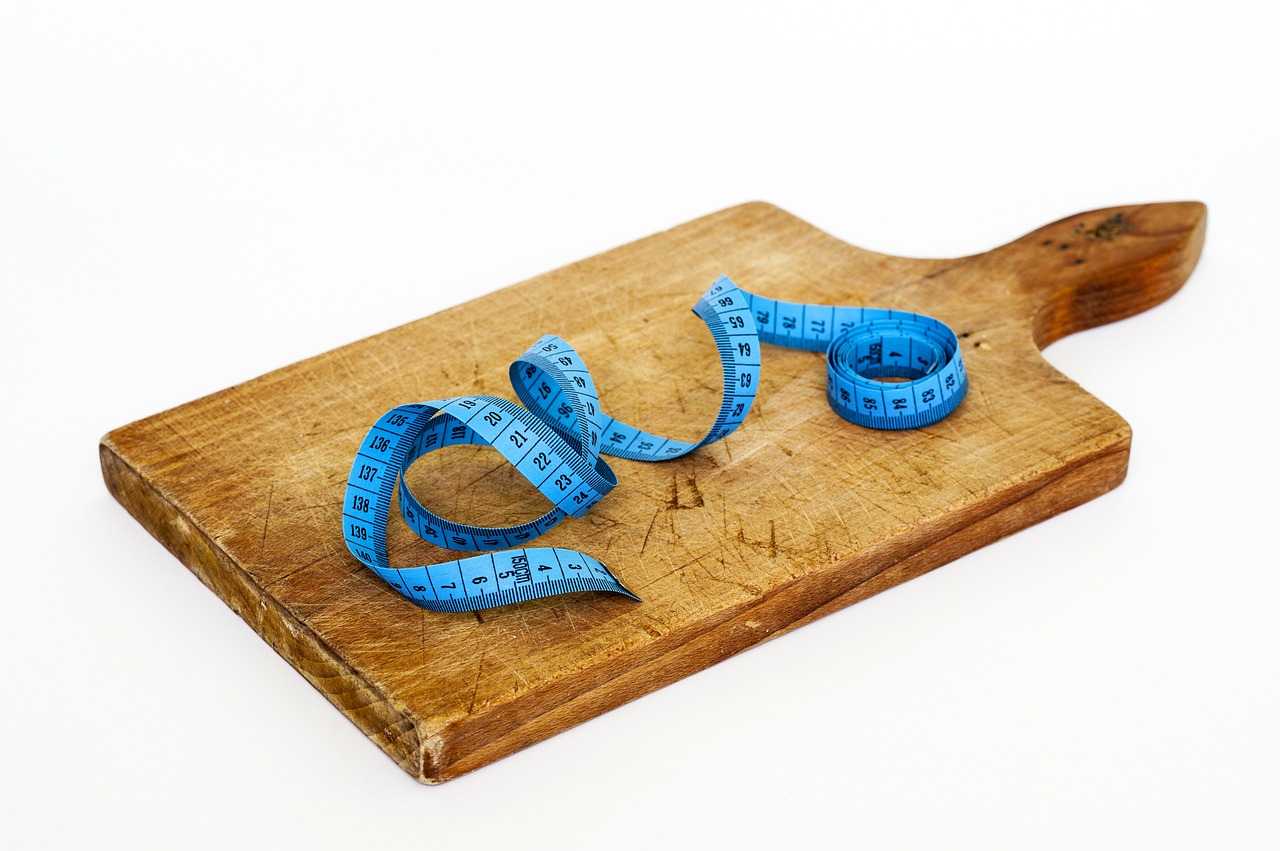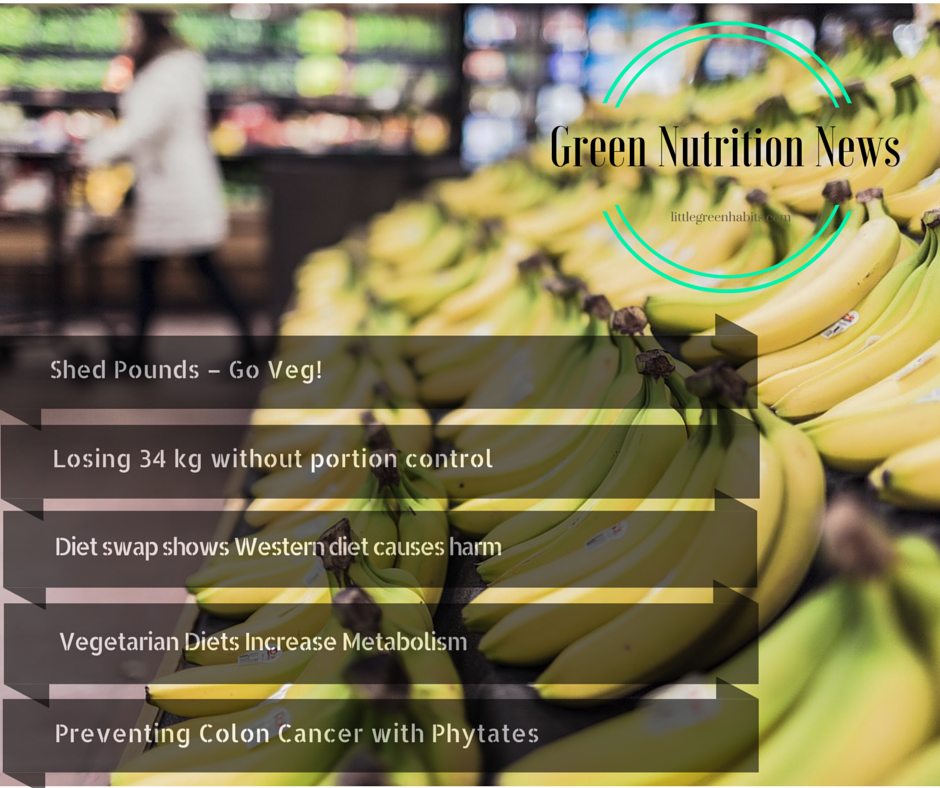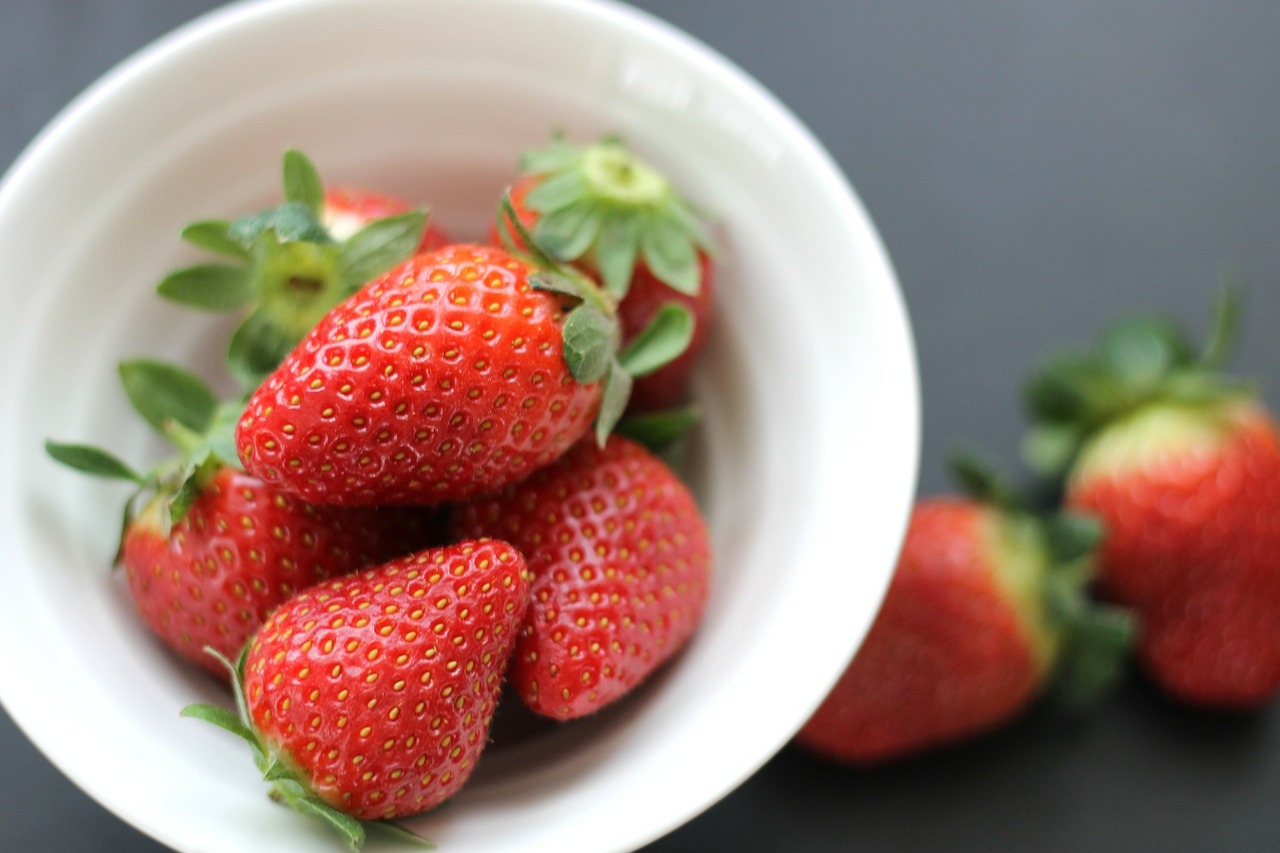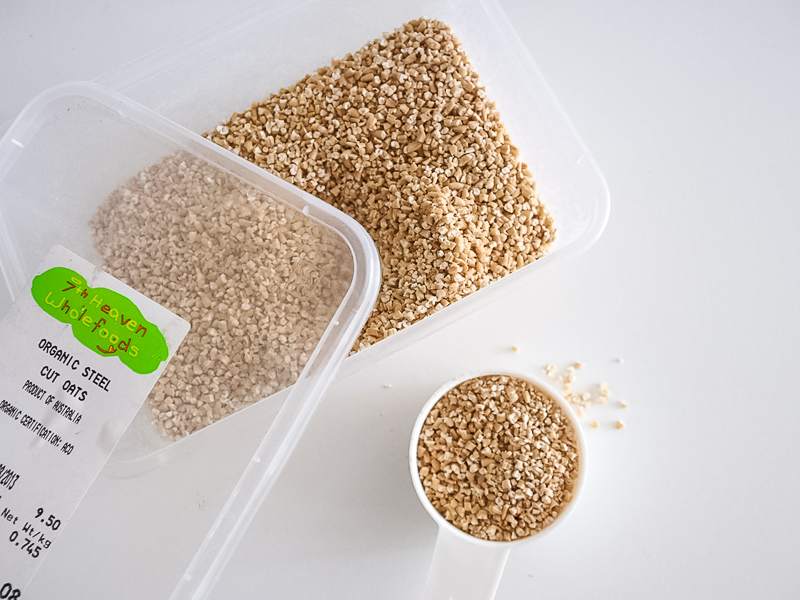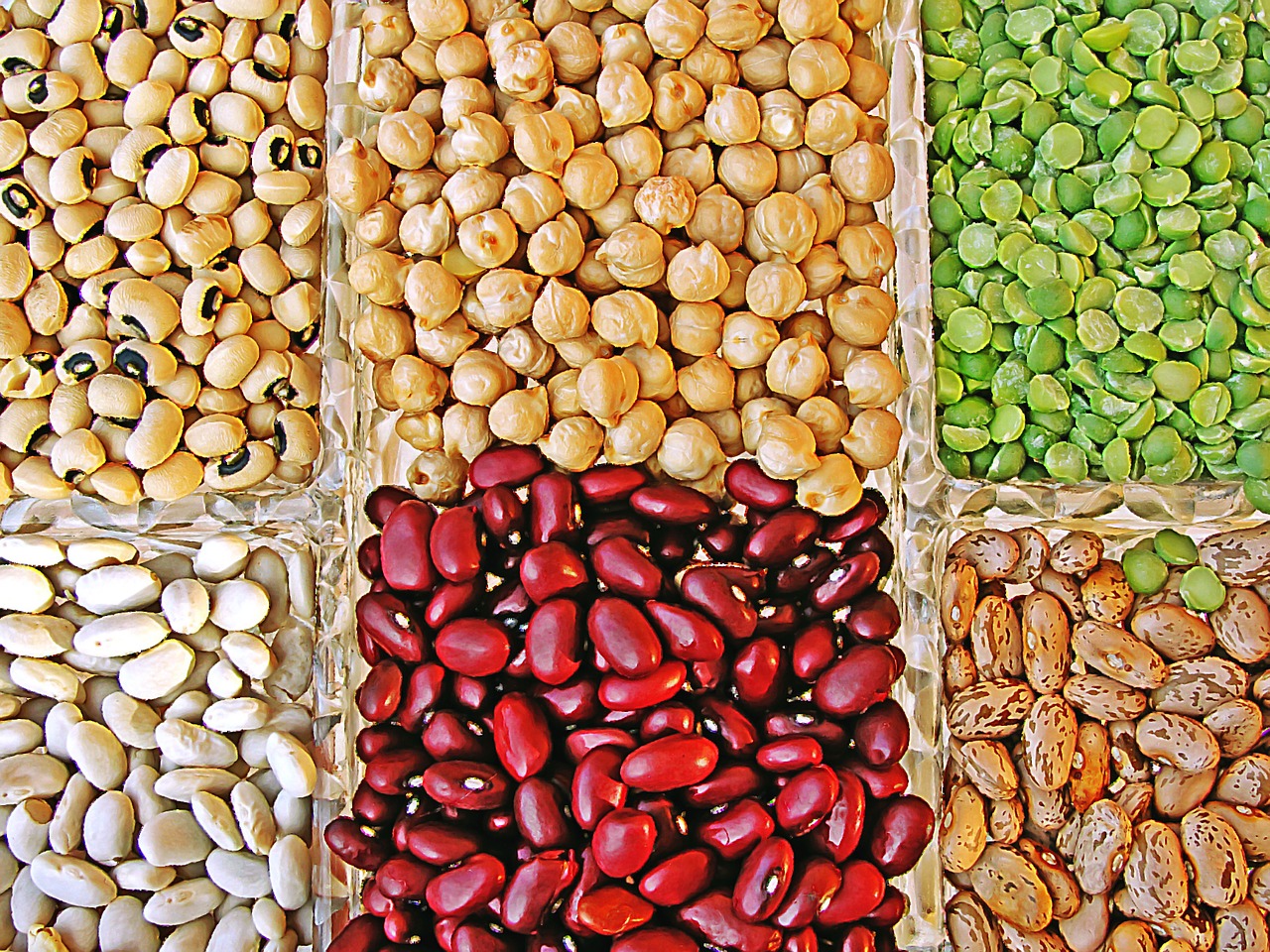Review: Dr Fuhrman’s Weight Loss Starter Kit
Dr Joel Fuhrman is a best-selling author, board-certified physician, plant-based nutrition expert and creator of the Nutritarian way of eating and healthy weight loss. One of his popular products is The Weight Loss Starter Kit, which I have purchased and used myself.
The Weight Loss Starter Kit is a multimedia program. It consists of a suite of books and DVDs:
- The End of Dieting book
(hardcover, signed by Joel Fuhrman)
- Nutritarian Planner & Journal (spiral-bound)
- Secrets to Healthy Cooking DVD
- Eating Like a Nutritarian DVD
- 1 FREE month of GoldPLUS Membership for new members
The program centres around nutrition and healthy eating and offers solutions to people who are:
- Trying to lose weight and keep it off
- Hoping to get off the endless fad diet money-go-round that never seems to achieve lasting results
- Looking for a weight loss solution that not only is sustainable, but will deliver excellent nutrition to help combat high cholesterol, diabetes, high blood pressure, and other common ailments
In this review I will summarise each of the component of Dr Fuhrman’s Weight Loss Starter Kit based on my own personal experience and break it down to help you understand how the program works.
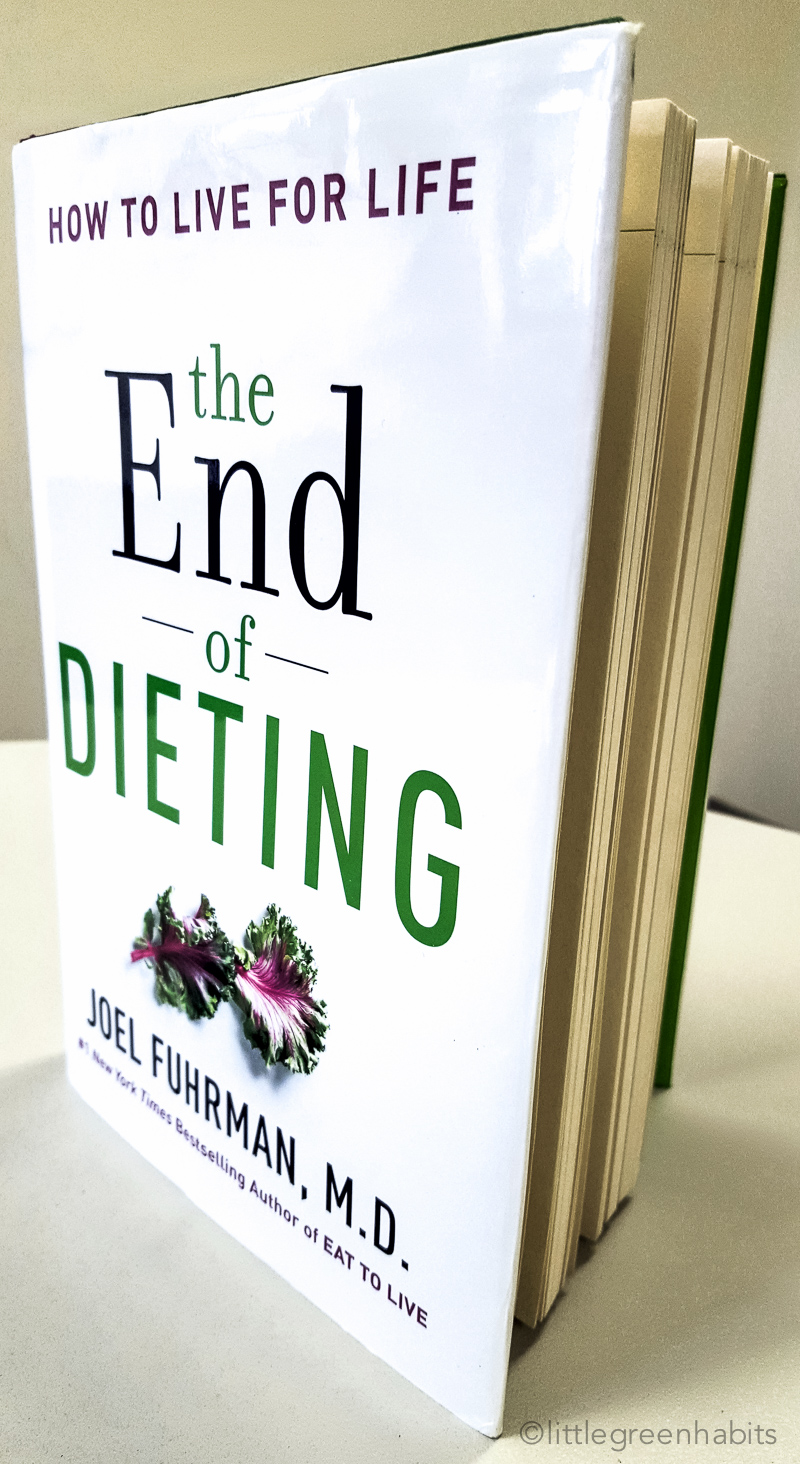
Key Principles
Central to Dr Fuhrman’s philosophy, as explained in his other, highly-recommended and best-selling book The End of Dieting, is his simple health equation:
Health = Nutrients / Calories
In other words, your health is predicted by your nutrient intake divided by your calorie intake. This means that you are advised to consume foods that have the highest nutrient value, with the lowest calories available. Essentially, this means natural high-fibre low-calorie whole plant foods.
A key part of Dr Fuhrman’s Weight Loss Starter Kit is The End of Dieting book. It shows how to break the cycle of endless fad or restrictive diets, and protect yourself with all the dietary and nutritional advice you need. In The End of Dieting
Dr Fuhrman catalogues many case studies where people have broken free of their food addictions, dramatically improved chronic health conditions, and lost huge amounts of weight (from 50 to 100kg weight loss) and experienced transformations in their physical and mental health through embracing an exercise routine and a plant-based diet filled with vegetables, fruit, beans, whole grains, nuts and seeds.

The End of Dieting also explores a number of topical issues:
- The effects of ‘toxic hunger’ and food addictions, caused by eating unhealthy, low nutrient, addictive foods
- The Three Habits of Health – eating high-nutrient low-calorie foods, exercise and positive mindset.
- Debunking diet myths, including:
- The Standard American Diet (SAD) which is centered on chicken, red meat, cheese, processed grains and sweets;
- The Mediterranean Diet, with its over-emphasis on unhealthy olive oil and pasta;
- The Paleo Diet (and all its high-protein-low-carb predecessors), which, as Dr Fuhrman says, leaves you “dead – like a caveman”;
- The ‘Wheat Belly’, and various versions of calorie and portion-controlled diets.
Dr Fuhrman urges us to ditch all these diets. He calls for an end to fad diet extremism in all its forms, and instead focuses on health first, by maximizing consumption of crucial micronutrients, and weight second.
Dr Fuhrman’s key message is that in order to have a balanced diet, we should be eating lots of vegetables, especially green vegetables, fruits (including berries), beans, legumes, whole grains, mushrooms, seeds and nuts. His advice is to stop looking for diets and just eat as healthfully as possible.
G-BOMBS
To obtain the best possible concentration of healthy plant foods, Dr Fuhrman employs a simple acronym: G-BOMBS, which stands for:
- Greens
- Beans
- Onions
- Mushrooms
- Berries and
- Seeds & nuts
Dr Fuhrman promotes G-BOMBS as foods with the most powerful immune-boosting and anti-cancer effects, and raw salad vegetables to help you lose and control your weight. He goes deep into all the benefits of whole plant foods to support weight control and protection for chronic disease.

The Nutritarian Program
The Nutritarian program is designed to help you make a start on a wholefood plant-based diet-style.
According to Dr Fuhrman’s, the Nutritarian diet style “enables you to lose weight and keep it off permanently, without experiencing hunger or depriving yourself of food.”
Not only does counting calories and eating less not work for long-term weight loss, Dr Fuhrman explains, it isn’t supported by advances in nutritional science or clinical evidence. A low-calorie diet that is nutritionally unsound is doomed to fail because it “increases your cravings and hunger signals.”
Included in the book also a healthy eating plan, weekly meal ideas, and recipes.
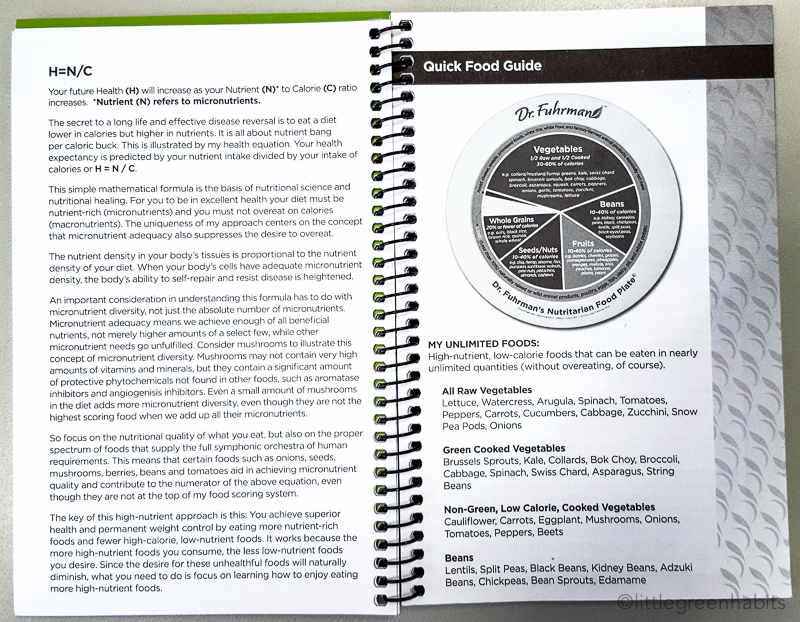
Rather than focusing on the foods you can’t eat, Dr Fuhrman inspires you to enjoy the kaleidoscope of plant foods that you can eat in abundance.
Six basic guidelines to Dr Furhman healthy eating plan
The plan in the End of Dieting is boiled down to six basic guidelines for everyday eating;
- Eat a large salad as your main dish
- Eat half a cup to a full cup of beans
- Eat one large serving of lightly steamed green vegetables
- Eat at least one ounce of raw nuts and seeds
- Eat mushrooms and onions, and
- Eat at least three fresh fruits a day
And if you find it too hard to remember, don’t worry – you don’t need to. Dr Fuhrman also provided an online daily checklist to help remind you of these guidelines. And to help you even further we have created a Quick Start Guide based on Dr Fuhrman’s guidelines (refer to the bottom of this post for more info).
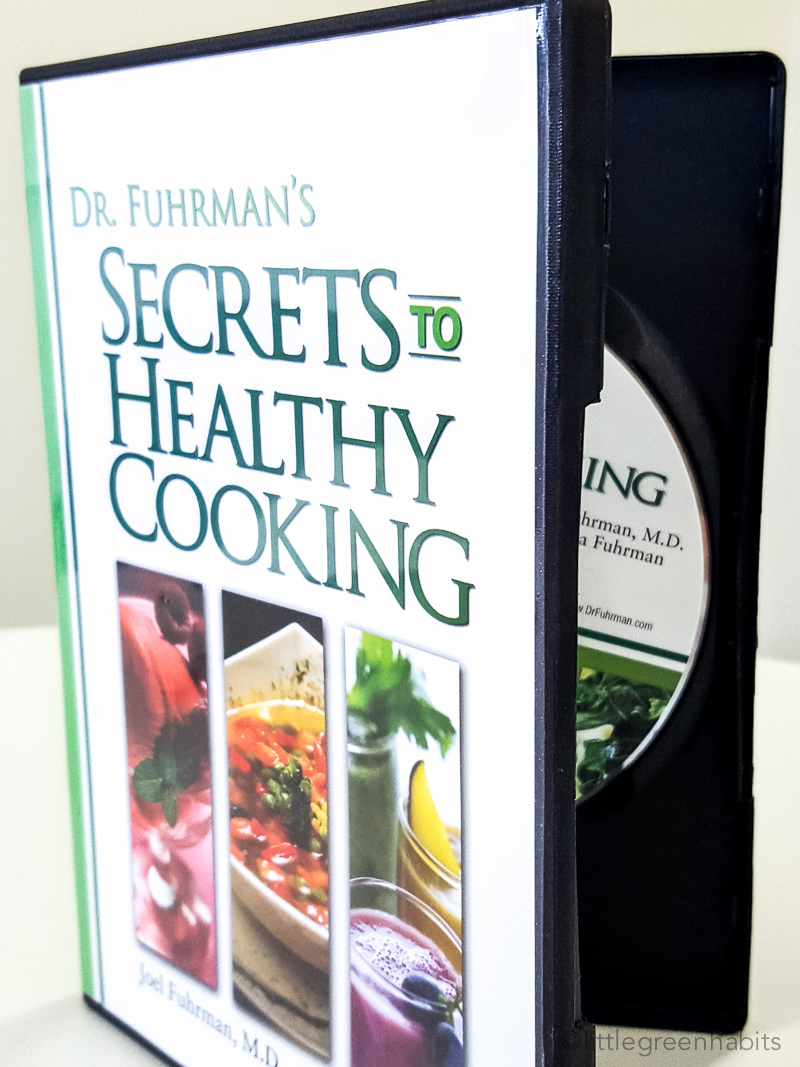
DVD guides
The two DVDs provide a visual demonstration on how you can implement the Nutritarian lifestyle and create delicious healthy meals.
Eating Like a Nutritarian
Recorded at Whole Foods Market (but could be set at any green grocers, organic store, or produce section of your local supermarket) Dr Fuhrman takes you through the high nutrient (plant) food aisles to show you what to buy and how to prepare all the super-foods that your body needs: vegetables, fruits, beans, whole grains, and the right fats and proteins.
Here, Dr Fuhrman also addresses the biggest dietary myths we have been told, ranging from misconceptions about olive oil to the truth about snacking. You’ll learn about the science behind why whole plant foods help you to burn fat and achieve optimum health, and why it’s important to limit, or avoid animal products in your diet.
Secrets to Healthy Cooking
This video features Dr Fuhrman and his wife, Lisa. They take you into their kitchen to demonstrate the techniques and principles behind preparing delicious super-plant-foods. You’ll learn how to prepare delicious high nutrient recipes, as well as Dr Fuhrman favourite recipes and his general formulas for making:
- Salad Dressings & Dips
- Soups & Stews
- Main Dishes
- Vegetable Smoothies
- Ice Cream & Sorbets
As an added bonus, a recipe booklet also is included with this DVD to help you get started.

The Weight Loss Starter Kit also includes an attractive spiral-bound Nutritarian Planner and Journal.
The Nutritarian Planner & Journal encourages you to:
- Keep track of your progress
- Commit to your dietary and exercise goals
- Document your feelings, both the triumphs and the difficulties
A daily journal is a useful tool to help you change your current diet and lifestyle. If you keep a food diary and record your health and weight loss goals, this will assist you to take control over your lifestyle choices.
If you buy the The Weight Loss Starter Kit you can choose this as a ‘stand-alone’ item, or you can elect to sign up (as I have done) for a monthly membership (for new members you’ll receive a free month’s Gold Plus membership). The benefits of being a member of Dr Fuhrman’s online community include:
- Nutritarian recipes and menus – view, search and print over 1,500 recipes, rated and reviewed by other members
- Recipe of the Day email – recipe suggestions delivered to you daily via email
- Healthy Times Newsletters and Position papers – browse a library of previously published newsletters and papers on various topics in nutrition and science
- The Health Tracker – an easy way to track your progress
- Webinars and Teleconferences – access to an archive of recorded webinars and teleconferences on a variety of topics in science, nutrition, and health
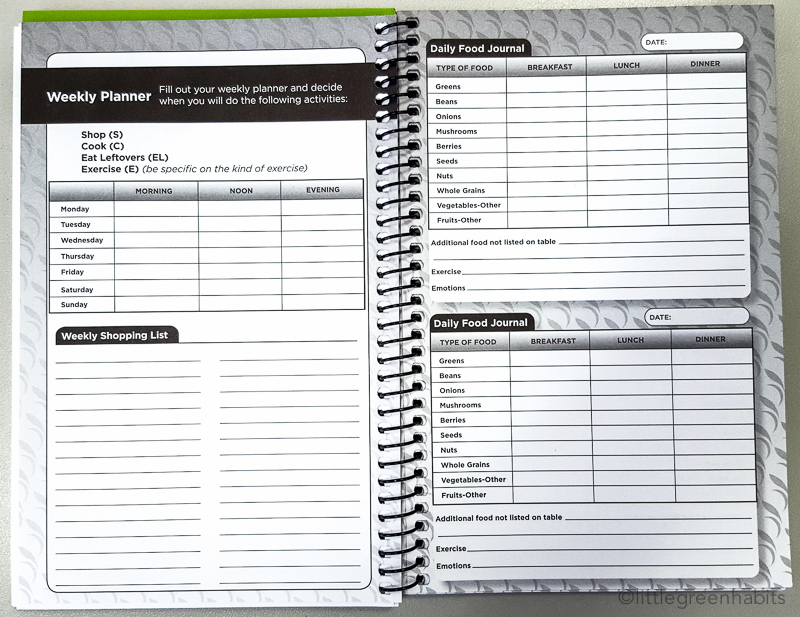
The Downside
The downside of Dr Fuhrman’s Weight Loss Starter Kit is that it requires you to invest significant time and effort in reading, planning, and preparing for transitioning to a healthy plant-based diet. If you’re looking for a ‘quick-fix’ diet, like, say, the 5:2 diet, where you eat normally for 5 days and ‘fast’ for 2 days on only 500 calories a day, or a restrictive regime like Paleo diet, where you can’t eat dairy products, grains, or legumes, but eat lots of meat, you will be disappointed with Dr Fuhrman’s Nutritarian eating plan.
Although all the foods Dr Fuhrman promotes are plant-based, it is not strictly speaking a low-fat vegan diet, such as Dr Barnard’s 21-day Vegan Kickstart (which I have also done, bought and read the book, and personally endorse).
As Nutritarian, you don’t have to follow this 100% of the time – if you don’t want to. I eat healthy plant-based foods every day as a vegan, and I advocate this diet for optimal health, for animals, and the environment. If you want to incorporate a small quantity of animal products in your diet, that’s up to you. Obviously, though, the more you follow this diet the more likely you will see positive results. According to Dr Fuhrman, “at least 90% of calories” should come “from unrefined plant foods”.
What I think
By adopting and adapting Dr Fuhrman’s Nutritarian eating and weight loss plan I have experienced some weight loss (about 7-8 kilograms/15 pounds so far), and, most importantly to me, this has helped me to bring my cholesterol, triglyceride and blood pressure levels down from dangerously high to well-within safe levels.
I have a family history of vascular disease and stroke, and my doctor has diagnosed me with ‘familial hypercholesterolaemia’, which is a fancy term for a genetic predisposition to high cholesterol levels. Despite this, with medication and dietary changes to a healthy low-fat vegan ‘Nutritarian’ style diet, I have defied my genes and gone from a high-risk to low-risk of dying from heart disease. Not only do I feel lighter and fitter, I am less worried about being around to look after my family and kids as I grow older. Is that worth the US$57.91 for The Weight Loss Starter Kit? I say yes, every penny of it.
The Nutritarian diet style requires a lot of time, commitment and immersion into the program. This might put you off, but I can guarantee it’s worth it.
I don’t follow the Nutritarian guidelines 100% of the time, and occasionally I’ll consume a bit of refined or junk food, or even a glass of red wine (or two)! So don’t worry if you think you can’t follow this always: I don’t. I’m not perfect, and that’s fine. I still want you to enjoy life, but I also know that to see permanent improvements to your weight and health, you have to be prepared to make significant changes to your diet and lifestyle. This program provides a clear and comprehensive roadmap to achieving your weight and health goals for (potentially) the rest of your life.
If you really want to lose weight and keep it off, and improve your health at the same time, I highly recommend Dr Fuhrman’s weight loss program. It’s super comprehensive, educational and quite an investment for your future health and longevity.
Little Green Habits Readers’ Special Bonus Pack
We only promote products that we believe to have tremendous value and that we have used ourselves. I personally had a great experience with this program and I believe that it may help you too. To help you further along with your journey to healthy weight loss, when you purchase Dr Fuhrman’s Weight Loss Starter Kit through our special link (we earn a small commission on any orders made via our affiliate link, but this won’t cost you any extra), you will get a special bonus pack which consists of the following:
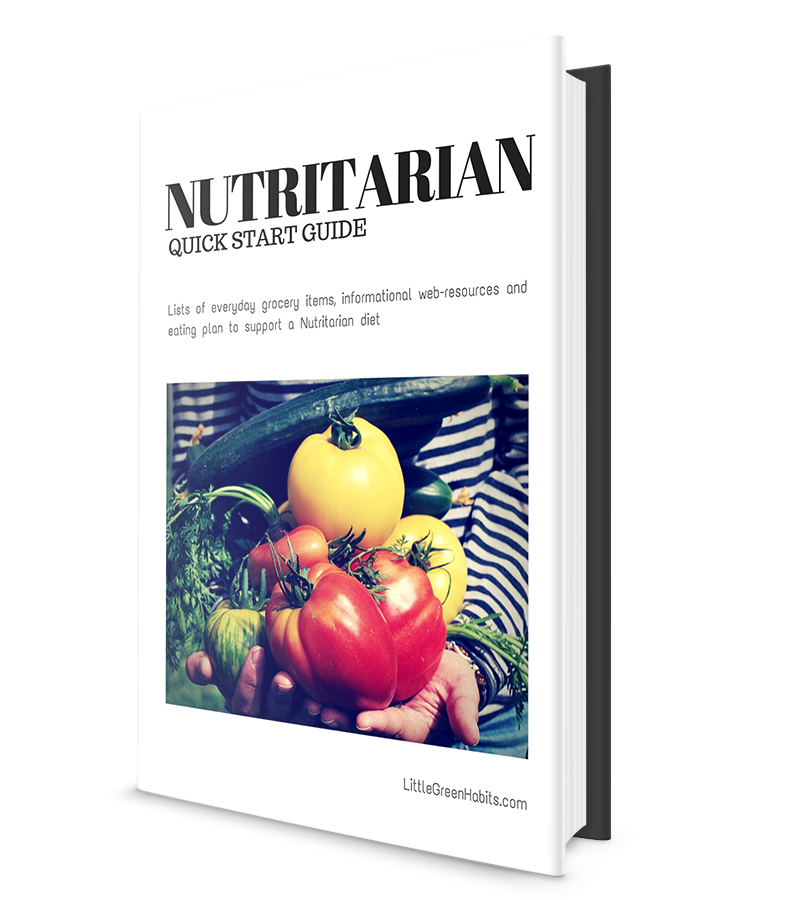
1. Nutritarian Quick Start Guide
If you order Dr Furhman’s Weight Loss Starter Kit via Little Green Habits, you will receive, as an added bonus, a free 25-page Quick Start Guide on how to eat as a Nutritarian – including a shopping list, recipes, meal ideas, and several resource links to nutritional and health benefit information for a huge variety of plant foods.
2. Exclusive email Q&A session
Where you can ask me any questions about how I implemented the Nutritarian lifestyle, lost weight and lowered my cholesterol (I will respond to all emails on this subject for up to 3 months). (*Please note: I am not a medical health care professional and I advise anyone to seek appropriate medical advice before considering changing their diet, medication or exercise).
To get your Weight Loss Starter Kit, as well as your bonus FREE Nutritarian Quick Start Guide just click here
and order yours today! Simply email me an electronic copy of your receipt, and I will reply with your Special Bonus Nutritarian Quick Start Guide PDF e-book and we can start planning for your Exclusive email Q&A session.
I hope you find this review useful. If you have any questions or comments about anything I mentioned here, feel free to leave a comment or reach me at: tom@littlegreenhabits.com.
To your health and happiness,
Tom Perry


